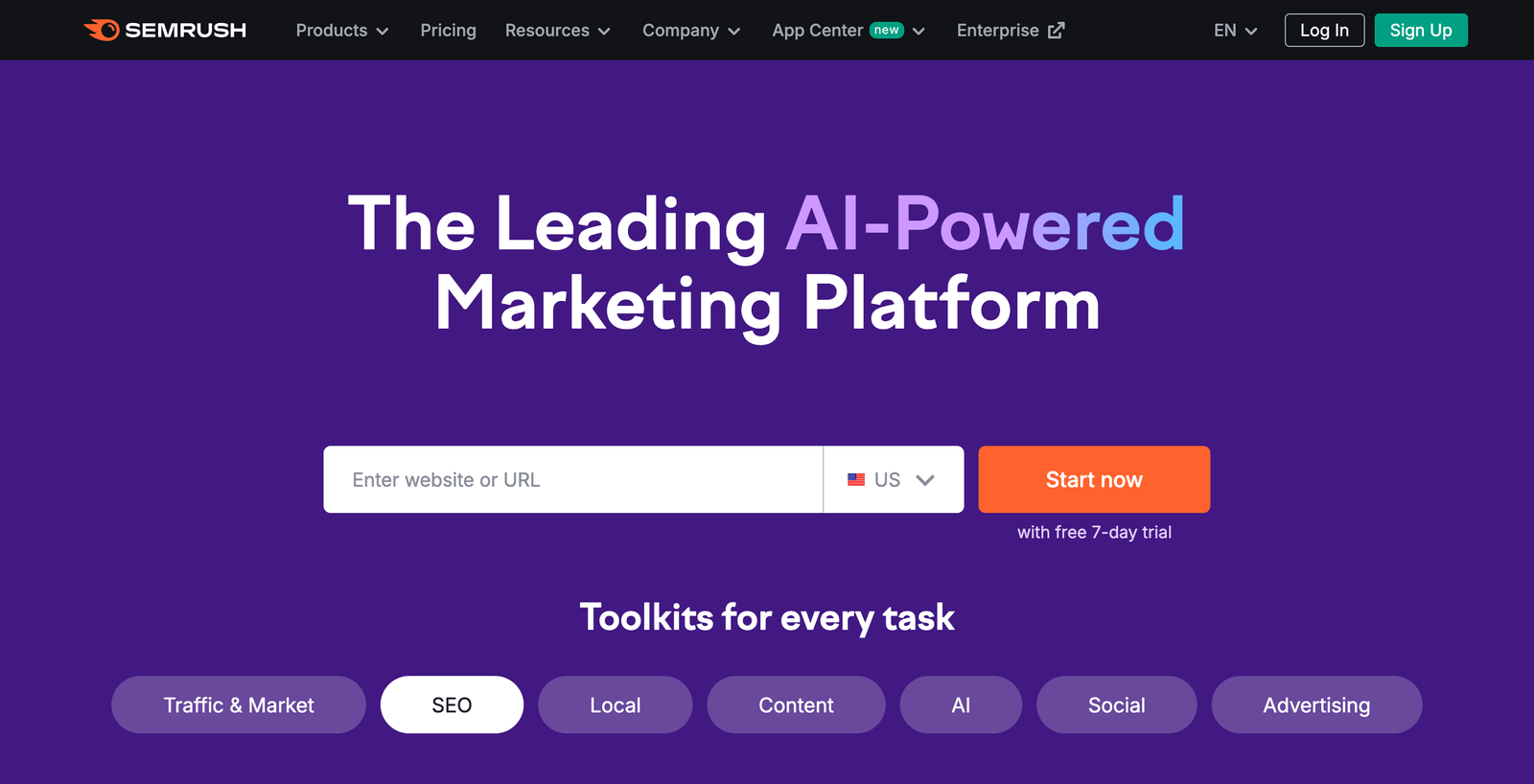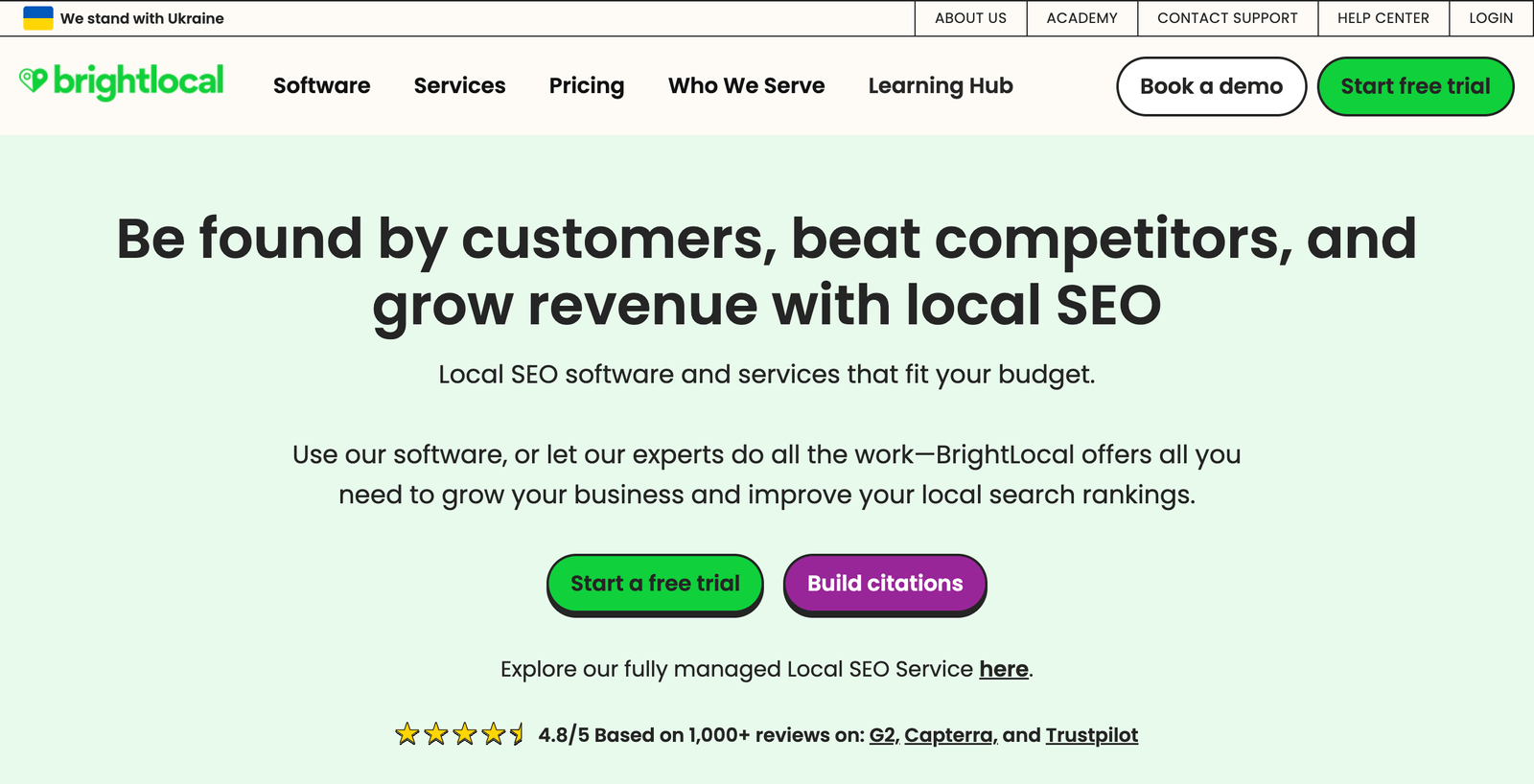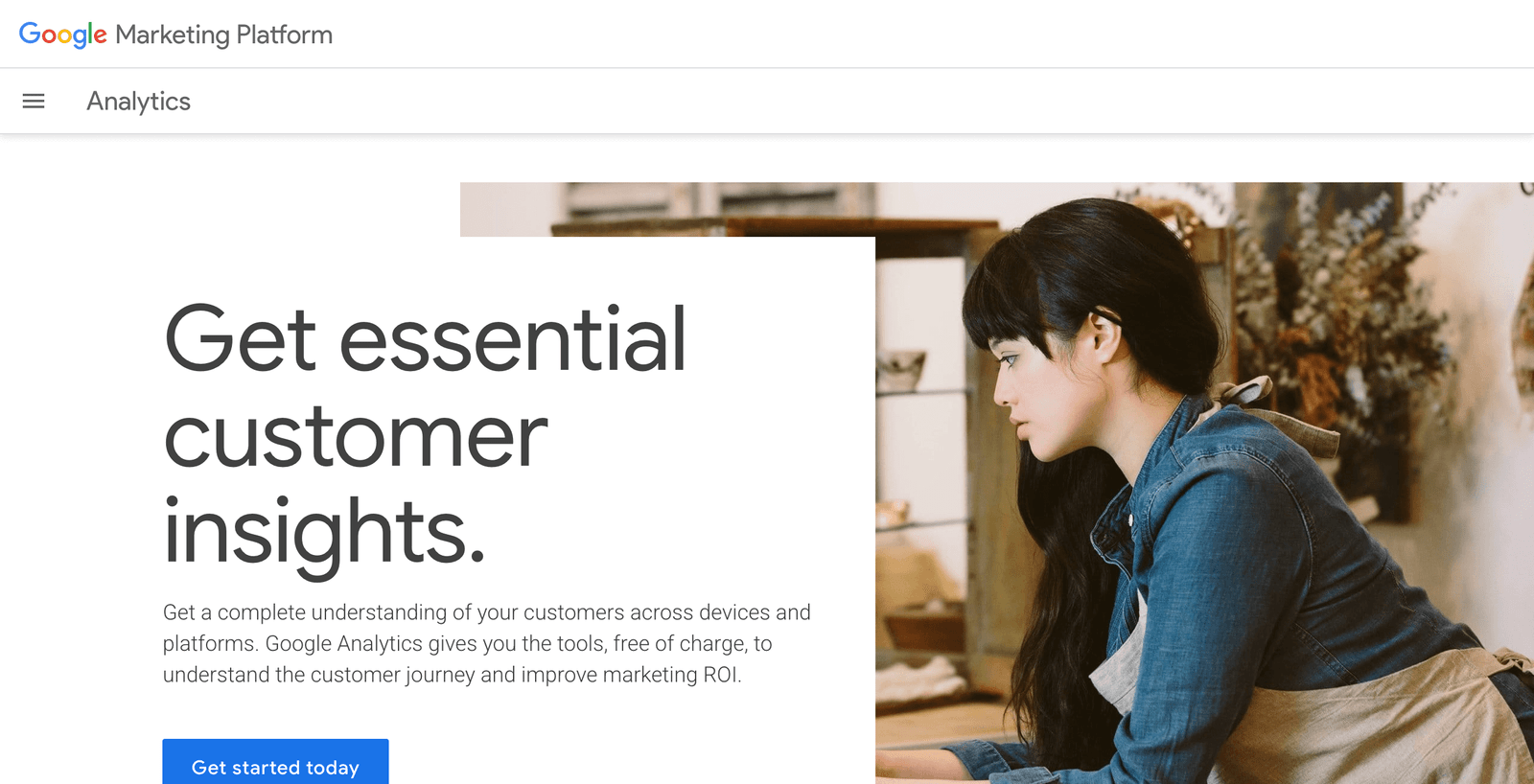The accounting industry has never been more competitive. With more than 80% of users clicking on organic search results over paid ads, having a strong SEO strategy isn’t just nice to have, it’s essential for attracting high-value clients who are actively searching for accounting services.
I’ve been working with accounting firms and their digital marketing strategies since the early days of Google My Business, back when most CPAs thought “getting online” meant having a basic website with their contact information. That’s about as long as anyone outside of a tech startup has realistically been thinking about SEO for professional services, and I’m genuinely excited by how far these tools have come.
I’m going to try to avoid the thorny discussions around whether accounting firms should handle SEO in-house versus outsourcing, or the endless debate about content marketing versus technical SEO, at least where I can. Instead, I’ll focus on the fact that these SEO tools can now produce measurable results for accounting firms of all sizes, from solo practitioners to multi-office partnerships.
It’s worth investing a few hours to get familiar with at least one of these SEO platforms, even just so you can understand what your competitors might be doing. Whether you like it or not, potential clients are searching for accounting services online right now. And there will only be more searches to come.
The best SEO tools for accounting firms
SEMrush for comprehensive SEO and competitor analysis
BrightLocal for local SEO and Google My Business optimization
Google Analytics 4 for foundational website analytics and tracking
How do SEO tools help accounting firms?

All these SEO tools take the mystery out of online marketing and turn it, as best they can, into actionable insights about how to attract more clients. This opens up some significant opportunities, since your target clients might be searching for anything from “small business accountant near me” to “tax preparation services” or “QuickBooks bookkeeping help.”
The longer keyword phrases are also essential for aligning your search terms to voice search and AI trends, which are big in 2025 and beyond. Examples of search terms that accounting firms should target include phrases like “Certified tax accountant for freelancers in [City]” instead of just “Accountant,” or “QuickBooks bookkeeping for startups” instead of simply “bookkeeping.”
The reality is that most accounting firms work in a pretty similar way when it comes to attracting clients. The firms that show up first in search results get contacted first, they get to choose their clients, and they often charge premium rates. The firms buried on page three of Google results struggle to fill their pipeline and compete mainly on price.
Most SEO tools work by analyzing hundreds of factors that search engines like Google use to determine which websites to show first. By using these tools to optimize your firm’s online presence, you can improve your chances of appearing when potential clients search for accounting services in your area.
Before we dive in: I don’t want to oversell things. What these SEO tools can do is very impressive, but they aren’t likely to replace the need for quality client service or professional expertise. If you provide excellent accounting services and have satisfied clients, SEO tools can help more people find you. But if you’re looking to cut corners on service quality, you’re better off investing in improving your actual accounting practice first.
What makes the best SEO tool for accounting firms?
How we evaluate and test apps
Our best apps roundups are written by humans who’ve spent much of their careers using, testing, and writing about software. Unless explicitly stated, we spend dozens of hours researching and testing apps, using each app as it’s intended to be used and evaluating it against the criteria we set for the category. We’re never paid for placement in our articles from any app or for links to any site, we value the trust readers put in us to offer authentic evaluations of the categories and apps we review.
There’s a reason that professional SEO tools have become incredibly popular among accounting firms over the past few years: before that, most firms were flying blind when it came to online marketing. You might have had a website, maybe even paid for some Google Ads, but you had no idea if it was working or how to improve it.
Now that these SEO tools have been around for a while, there’s real competition between different platforms. They’ve increased in quality and can now provide insights specific to local professional services like accounting. If all you care about is the current “best” model, check out SEO AI Agent. But we’ve reached the stage where the top tools are all excellent, so specific features and usability for accounting firms matter more than they used to.
So, to find the best SEO tools for accounting firms, I set some pretty strict criteria:
I was looking for tools that could help accounting firms improve their visibility in search results, not just general marketing platforms. Tools that help with social media or email marketing are useful, but they aren’t the kind of SEO-focused solutions I was considering.
I was looking at SEO tools themselves, not agencies or services built on top of them. For example, many marketing agencies use these tools to provide SEO services, but I wanted to focus on platforms that accounting firms could use directly.
Aside from all that, I also considered how easy each SEO tool is to use for accounting professionals (who may not have extensive marketing experience), what kinds of insights it provides specifically for local professional services, what pricing model it has, and most important of all: how well does it work for accounting firms? The best SEO tools for accountants are those that can help attract high-value local clients consistently.
I’ve been using and writing about SEO tools for professional services since Google My Business first launched, and about local business marketing for more than a decade, so I’m pretty familiar with how all these tools work, and their various strengths, weaknesses, and occasionally frustrating limitations. But writing this article was actually the first time I’ve specifically tested SEO tools head-to-head for accounting firm use cases. The results were eye-opening, and I’m pleased to say all the tools on this list offer genuine value for accounting practices.
How to use SEO for accounting firm growth
Interested in SEO, but not quite sure how you’d use it for your accounting practice? Here are a few of the ways accounting firms are using SEO tools to grow:
Attracting local business clients through location-based search optimization
Generating tax season leads with seasonal content and keyword targeting
Building authority through thought leadership content on accounting topics
Monitoring online reputation and managing client reviews
Tracking competitor strategies to identify opportunities
Learn more about how accounting firms are using SEO to grow their practices.
The best SEO tools for accounting firms at a glance
| Best for | Access options | Price | Company |
|---|---|---|---|
| SEMrush | Comprehensive analysis | Web app; API | From $117.33/month for Pro plan |
| BrightLocal | Local SEO focus | Web app | From $39/month for Track plan |
| Google Analytics 4 | Website analytics | Web app; API; mobile app | Free; GA 360 starts at $12,500/month |
The best comprehensive SEO tool for accounting firms
SEMrush

SEMrush pros:
- All-in-one marketing solution with 55+ tools for SEO, PPC, social media, content marketing, local SEO, technical SEO, market research, and competitor analysis
- Excellent for firms that want to understand their competition
- Clear winner if you run both SEO and Google Ads campaigns
SEMrush cons:
- Can feel a bit overwhelming at first with all the features
- Higher price point may be steep for solo practitioners
- Steeper learning curve compared to simpler tools
SEMrush Holdings, Inc. is an American public company that has a SaaS platform known as Semrush. The platform is used for keyword research, competitive analysis, site audits, backlink tracking, domain authority tracking, and online visibility insights. For accounting firms, this translates to being able to see exactly what keywords your competitors are ranking for, what content is working in your market, and where the opportunities are.
What makes SEMrush particularly valuable for accounting firms is its local SEO capabilities combined with comprehensive competitor analysis. Unlike Ahrefs, Semrush lets you check keyword metrics for a particular location, including keyword difficulty, volume, search intent, and cost-per-click (CPC). This means you can see exactly how difficult it would be to rank for “tax preparation [your city]” and what it might cost if you wanted to run ads for those terms instead.
The platform really shines when it comes to content strategy for accounting firms. You can use the keyword research tools to identify what potential clients are actually searching for—terms like “when to switch from cash to accrual accounting” or “tax deductions for independent contractors”—and then create content that answers those questions.
One feature that accounting firms consistently find valuable is the ability to track local rankings. With Semrush Pro, which is $139.95, you can track up to 500 keywords with daily updates. This means you can monitor how you’re ranking for important terms like “CPA near me” or “small business accountant [your city]” and see the impact of your SEO efforts over time.
SEMrush pricing: Plans start at $119.33/month for the Pro plan, which includes keyword research, competitor analysis, site audits, and position tracking. You can try it free for 14 days.
The best local SEO tool for accounting firms
BrightLocal

BrightLocal pros:
- BrightLocal’s auditing tools crawl 300+ data points across local search, citations, and Google Business Profile to flag issues, and highlight your biggest opportunities to improve
- Specifically designed for local businesses like accounting firms
- Plans start from just $39 per month
BrightLocal cons:
- Focused only on local SEO (not broader digital marketing)
- Limited competitor analysis compared to comprehensive tools
- Fewer content marketing features
BrightLocal doesn’t offer everything under the sun, only what you need to get local done. Our mission is simple: give marketers everything they need to excel at local SEO, at an unbeatable price. For accounting firms that primarily serve local clients, this focused approach is exactly what you need.
What sets BrightLocal apart is its specialization in the kind of SEO that actually matters for accounting firms. Generalist SEO tools like Ahrefs and Semrush are great, but they’re not built for local marketers. They might show you where you rank generally, but not why, in specific locations, and point out the actions you need to take to improve.
The Local Search Audit is particularly powerful for accounting firms. It looks at your rankings, reviews, business listings, on-page SEO, links, Google Business Profile and hundreds of other factors, then provides you with simple, actionable insights based on these data points. This is invaluable for understanding why you might not be showing up when someone searches for “accountant near me” in your area.
BrightLocal has really helped us implement change for our clients, and get them to the top 3 in the Google Map Pack, according to one agency testimonial. For accounting firms, appearing in that top 3 local pack can be the difference between a steady stream of inquiries and struggling to find new clients.
The platform also includes comprehensive review management tools, which are crucial for accounting firms since trust is such an important factor in choosing a CPA. Cover every part of review management in one place. Generate new reviews, manage them across 80+ review sites, and build social proof that attracts new customers.
BrightLocal pricing: Plans start from just $39 per month for the Track plan. There’s a free 14-day trial available, and they offer a free tier for basic citation building.
The essential free analytics tool for accounting firms
Google Analytics 4

Google Analytics 4 pros:
- Completely free for most accounting firms
- Direct insights from Google about your website traffic
- Google Analytics 4 (GA4) is an effective tool for measuring SEO performance. It helps you measure organic traffic, conversion rates, and user behavior
Google Analytics 4 cons:
- Steeper learning curve compared to GA Universal Analytics
- Requires some technical setup for advanced features
- Can be overwhelming for firms new to analytics
Whenever someone asks me about Google Analytics, I always say, “Analytics is like Microsoft Excel. MS Excel is a very robust and powerful tool, but most people just know how to make a basic spreadsheet.” But even basic Google Analytics can provide incredibly valuable insights for accounting firms.
For accounting firms, the most important thing Google Analytics can tell you is where your website visitors are coming from and what they do on your site. The typical metrics I show in a digital landscape from Google Analytics are: User flow and various conversion metrics that help you understand which pages are actually leading to client inquiries.
What makes Google Analytics essential for accounting firms is that it’s the source of truth for your website’s performance. For the most accurate data, Google Search Console and Google Analytics will always be your best bet. Every other tool just helps you understand the bigger picture. While SEMrush and BrightLocal provide estimates and competitive insights, Google Analytics tells you exactly what’s happening on your own website.
The most important rule for Google Analytics (and really anytime you are analyzing data) is to look at your date range. I usually look at at least a year or longer of data if possible, since sometimes, making decisions based on a short date range can lead you down the wrong path. This is particularly important for accounting firms since client acquisition patterns can vary significantly between tax season and the rest of the year.
Many accounting firms also find value in connecting Google Analytics to their other SEO tools. By connecting your Google Analytics and Google Search Console accounts to Semrush, you can analyze all of your website’s data from one central location—the Semrush user interface.
Google Analytics 4 pricing: Free for most accounting firms. Google Analytics 360, which includes advanced features and support, “starts at $50,000 per year but can go up to $150,000 (and even more) per year based on various factors. “
Other SEO tools worth considering for accounting firms
The three tools above represent the core of what most accounting firms need, but there are a handful of other platforms that warrant mentioning:
Moz Local. Similar to BrightLocal but with a different feature set. Good for citation management and local listing monitoring.
Ahrefs. Ahrefs is great if you purely focus on SEO, but it doesn’t have local SEO features. Better for content marketing and backlink analysis than local optimization.
Google Search Console. Free tool from Google that shows you exactly which search terms bring visitors to your site. Essential complement to Google Analytics.
Whitespark. Specialized local SEO tool with excellent citation finding and local rank tracking features.
CallRail. While not strictly an SEO tool, call tracking is crucial for accounting firms to understand which SEO efforts are actually generating phone inquiries.
If you want a more comprehensive list of every SEO tool available, including those built specifically for professional services, I’ve covered that in detail elsewhere. But for most accounting firms, starting with one tool from the list above and mastering it will provide more value than trying to use multiple platforms simultaneously.
Getting started with SEO tools for your accounting firm
So you know what the best options are, but…now what? Here are some practical next steps for accounting firms ready to invest in SEO:
Start with the fundamentals:
- Set up Google Analytics 4 and Google Search Console (both free)
- Claim and optimize your Google My Business profile
- Ensure your website has accurate contact information and service descriptions
Choose your primary SEO tool based on your firm’s needs:
- Solo practitioners or small firms: Consider starting with BrightLocal
- Firms wanting comprehensive competitive analysis: SEMrush is worth the investment
- Firms with existing marketing team: Google Analytics 4 plus Google Search Console may be sufficient initially
Focus on local optimization first:
- Most accounting clients are local, so local SEO should be your priority
- Use long-tail keywords, which accurately represent your client’s search intent, include more specific search terms, and have a lower search volume
- Target phrases like “tax preparation for small business owners in [your city]”
Track what matters for accounting firms:
- Phone calls and contact form submissions (these are your leads)
- Local search rankings for your most important service terms
- Website traffic during tax season vs. the rest of the year
- Online reviews and reputation metrics
The business impact of SEO for accounting firms
SEO tools are becoming increasingly sophisticated, but they’re still fundamentally about solving a basic business problem: helping potential clients find your accounting firm when they need your services.
Due to SEO’s consistent results, 50% of marketers agree that it is the most profitable digital marketing strategy. For accounting firms, this profitability comes from the fact that people searching for accounting services are often ready to hire someone, they’re not just browsing.
With 56% of consumers using search engines to find local businesses at least multiple times a week, and 21% of consumers using search engines every day to find local businesses, it’s key to use SEO to attract accounting clients. The accounting firms that invest in SEO tools and use them consistently are positioning themselves to capture this growing market.
What’s particularly exciting about the current generation of SEO tools is how they’ve become accessible to accounting firms without requiring extensive technical knowledge. Tools like BrightLocal can identify problems with your Google My Business listing and tell you exactly how to fix them. SEMrush can show you which topics your competitors are writing about and suggest content ideas for your firm.
The firms that start using these tools now, while many of their competitors are still relying on referrals and word-of-mouth alone, have a significant opportunity to establish market leadership in their local areas. As these tools continue to improve and more accounting firms adopt them, the competitive advantage will go to those who implement them most effectively.

